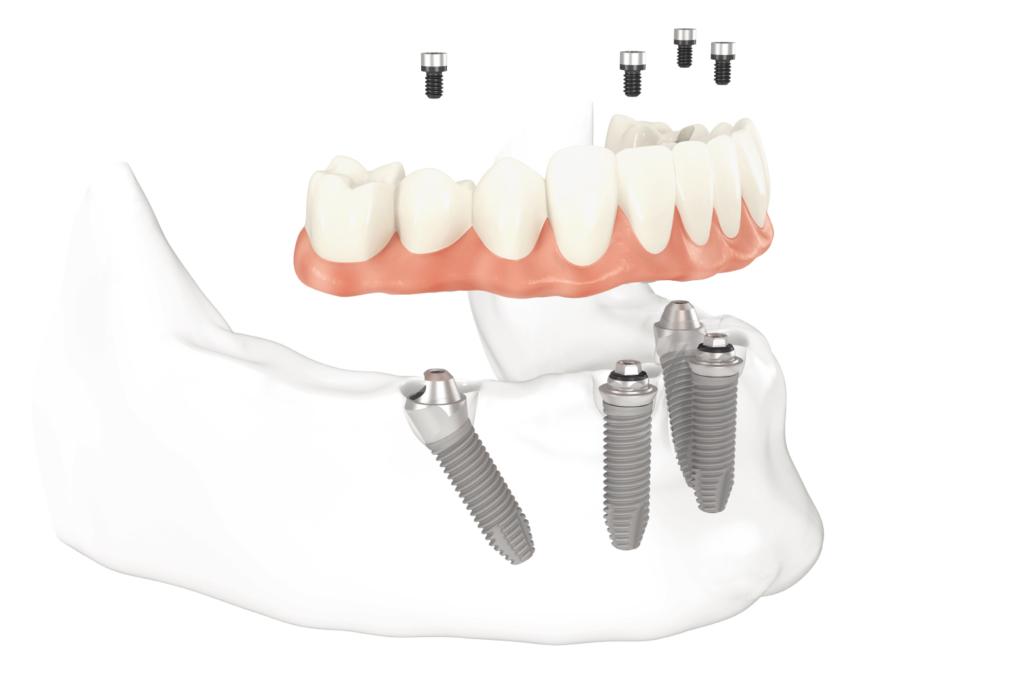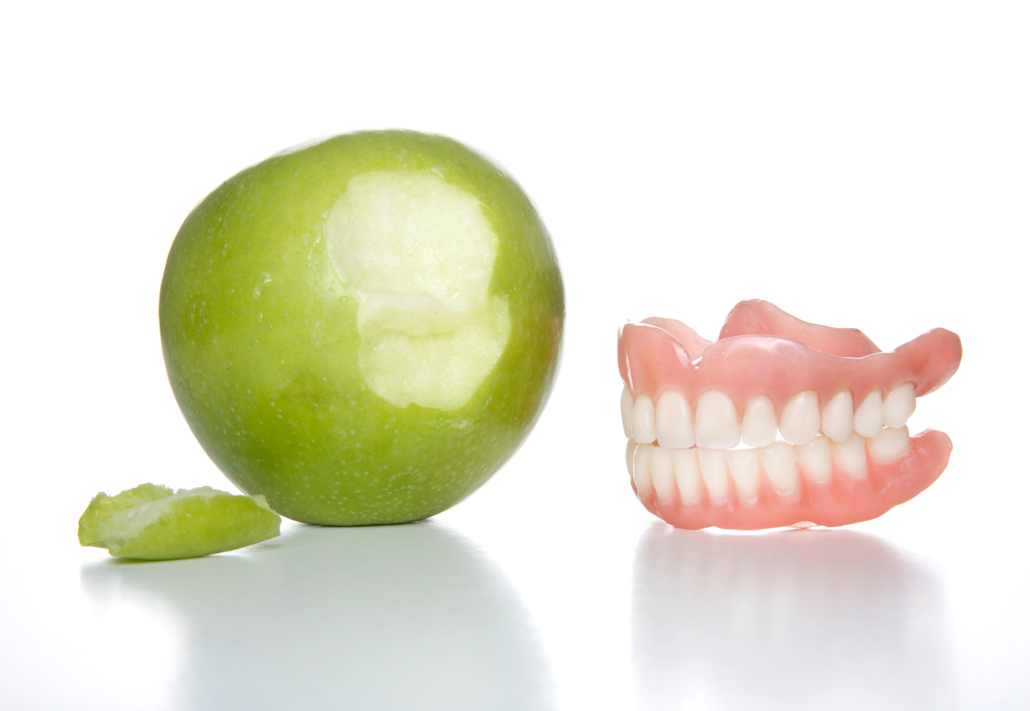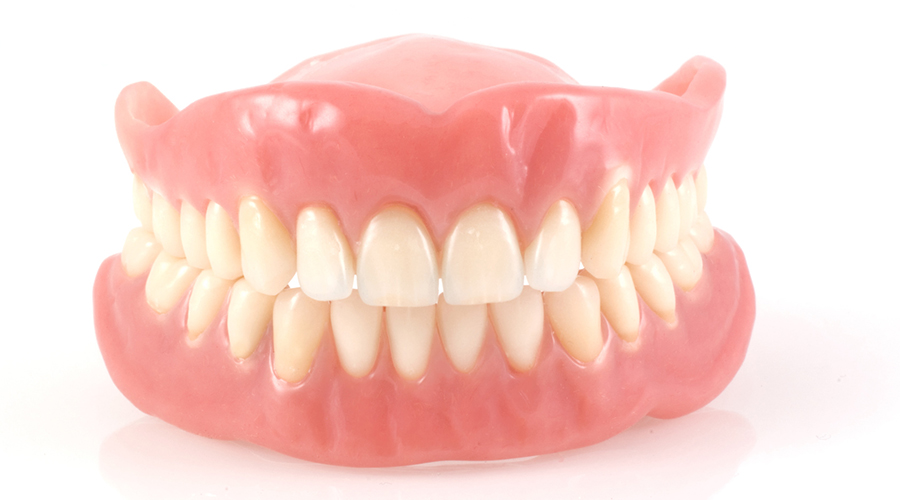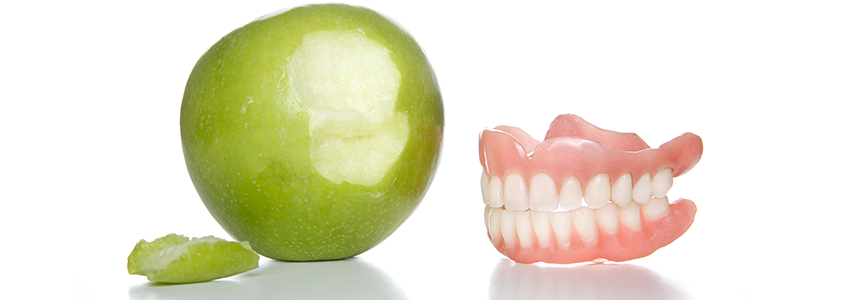Problems related to removable prosthesis and chewing can be of different nature, especially in the first period in which a removable prosthesis is applied to the patient.
The discomfort phase compared to a total removable prosthesis can be associated with different moments in the patient’s life, in the first times it can be difficult:
- speak correctly;
- to chew;
- coordinate the orofacial muscles.
Mobile prosthesis and chewing: how to get used to the prosthesis
In dentistry, the therapeutic response to the loss of teeth in an entire arch almost always includes two solutions:

With an implant surgery for the replacement of the teeth of an entire arch at the end of the treatment, the result is completely similar to the restoration of one’s natural teeth.
The sensation is that of having found one’s teeth and therefore there is no difficulty in speaking or chewing because the teeth are fixed and inserted into the bone.
The insertion of a denture, on the other hand, involves the sensation of having a foreign device inside the oral cavity. The prosthesis could move and from the mobility problems between mobile prosthesis and chewing can originate.
Dentures and chewing: nutrition can help

An adequate diet can help the patient to solve the problems related to mobile prosthesis and chewing, especially in the days following the insertion of the mobile prosthesis.
A study published in the Journal of Oral Rehabilitation evaluated the impact on patients of the dietary advice that dentists provided after prosthetic rehabilitation.
The effects on chewing were evaluated based on the cutting and mixing ability of 59 edentulous patients who were fitted with a total removable prosthesis.
The study group, consisting of 59 total patients, was divided into two groups:
- first group: 15 women and 15 men, between 66 and 82 years old;
- second group: 14 women and 15 men, between 72 and 84 years old.
The evaluations on dentures and chewing were made following two distinct actions by the dentist for the individual groups.
The dentist advised the first group on the diet to be adopted after the insertion of the prosthesis and advice on cleaning it.
The second group was given only advice on oral hygiene
The results of the investigation on dentures and chewing

Following the guidance on the individual groups, the researchers evaluated chewing abilities using a chewing gum. Based on the cutting and mixing capabilities, the rubber underwent a change in color.
Monitoring on masticatory functions was done 3 and 6 months after oral rehabilitation.
The group that received indications on the diet to follow showed a continuous improvement on the masticatory functions starting from the first monitoring, 3 months after the insertion of the mobile prosthesis.
In the second group the improvements in terms of removable prosthesis and chewing were noticeable only starting from the sixth month.
Establishing a relationship of trust with your dentist and trusting his advice is an added value compared to the effectiveness of any dental treatment.
















